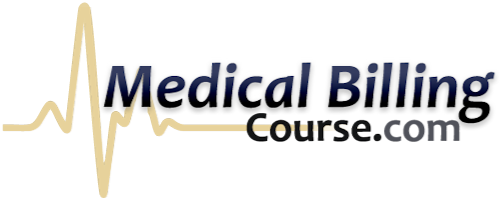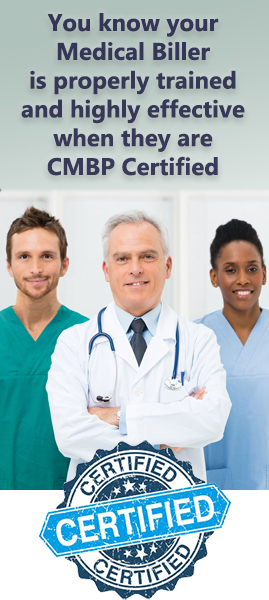- 09/24/2025
- Posted by: Medical Billing Course
- Categories: Medical Billing, Medical Billing Career, Medical Billing Course

Ever felt like medical billers speak a different language? Well, that’s because they do. Mastering medical billing terminology is like learning a new dialect, one that can open doors to career opportunities in healthcare.
This guide will break down the must-know terms for success in medical billing. We’ll cover the basics, decode common acronyms, and give you practical tips to master this essential vocabulary. Whether you’re just starting out or looking to level up your skills, you’ll find the knowledge you need to thrive in the world of medical billing.
Ready to become fluent in the language of medical billing? Let’s dive in and unlock your potential for a rewarding career in healthcare finance.
The Basics: Foundation of Medical Billing Terminology
Medical billing terminology is the specialized language used in healthcare finance. It includes industry-specific words and phrases that professionals need to understand thoroughly. This vocabulary ensures clear communication and accurate billing between healthcare providers, insurance companies, and patients.
The key components of this terminology include:
- Diagnostic terms: Describe patient conditions and reasons for services.
- Procedural codes: Specify the treatments and services provided, such as CPT codes.
- Insurance policy language: Covers details about coverage, authorizations, and benefits.
- Billing cycle terminology: Refers to stages like claim submission, processing, and payment.
- Compliance-related phrases: Encompass rules and regulations that govern ethical billing practices.
Mastering these terms is essential for accurate coding, reducing claim errors, and maintaining adherence to industry standards. A strong understanding of medical billing language builds confidence and forms the foundation for success in healthcare billing services.
Why is this crucial for success? Here’s the deal:
- Accuracy: Using the right terms ensures claims are filed correctly, reducing denials and delays. Proper terminology helps avoid common errors like upcoding, unbundling, or missing key information.
- Communication: It allows you to effectively interact with healthcare providers, insurance companies, and patients.
- Compliance: Using correct billing terminology ensures adherence to payer rules and regulatory requirements (like HIPAA and CMS guidelines), which helps prevent fraud accusations and compliance violations.
- Efficiency: Knowing these terms streamlines your work, making you more productive and valuable.
- Problem-solving: Understanding the language helps you quickly identify and resolve billing issues.
- Career advancement: Mastery of medical billing terminology sets you apart, opening doors to higher-level positions and better pay.
Think of medical billing terminology as the tools in your professional toolkit. The better you know how to use them, the more effective and successful you’ll be in your role.
It’s not just about memorizing a list of words. It’s about understanding the concepts behind them and how they fit into the bigger picture of healthcare finance.
Common Medical Billing Terms
Understanding key terms is essential for accurate billing. Here are some of the most frequently used terms in daily medical billing:
- CPT codes: (Current Procedural Terminology) codes used to describe medical, surgical, and diagnostic services. These codes are used for billing procedures to payers.
- ICD-10 codes: (International Classification of Diseases), 10th Edition, specify diagnoses. They justify medical necessity when submitting claims.
- Modifier codes: Additional two-digit codes added to CPT or ICD codes to clarify details of a service or procedure. They provide more specific information for billing purposes.
- Claim: The request submitted to a payer for reimbursement of services provided to a patient. It includes codes, charges, and patient details.
- EOB: (Explanation of Benefits) A statement from the payer that explains what services were paid, denied, or reduced. It details the payer’s decision for each claim.
- Denial: A claim that is rejected by the payer due to errors, incomplete information, or lack of medical necessity. It requires correction and resubmission.
- Rejection: A claim that is declined by the payer’s software due to processing issues, such as missing information or invalid codes, before review.
The Essential Medical Billing Vocabulary

Every new biller needs to be familiar with core words and phrases used daily in medical billing services. Here are some of the most important:
- Payer: The insurance company or entity responsible for paying the claim.
- Provider: The healthcare professional or facility that delivers services.
- Patient Demographics: Personal data such as name, date of birth, address, and insurance information.
- Co-pay/Co-insurance: The amount the patient pays out of pocket at the time of service or the percentage of the bill they are responsible for.
- Deductible: The amount the patient must pay before the insurer covers costs.
- Billing Cycle: The schedule or period in which billing and claims processing occur.
- Eligibility: Confirmation that a patient’s insurance policy covers specific services.
How This Vocabulary Fits Into Daily Tasks
- Verifying patient demographics ensures claims are accurate.
- Checking eligibility helps determine coverage before services are provided.
- Understanding co-pays and deductibles avoids billing errors.
- Managing billing cycles streamlines claim submissions and follow-up.
Familiarity with these terms helps maintain accuracy and efficiency in every step of medical billing services.
Understanding Medical Billing Acronyms
Acronyms are widely used in medical billing because they save time and space. Knowing common acronyms and jargon is vital for clear communication.
- HCPCS: Healthcare Common Procedure Coding System, used for billing supplies, drugs, and non-physician services.
- EOB: Explanation of Benefits, a statement explaining a claim’s outcome.
- ABN: Advanced Beneficiary Notice, a form used to inform patients if Medicare might not pay for services.
- RAC: Recovery Audit Contractor, a third-party organization auditing claims to detect improper billing.
Mnemonic Tips for Quick Recognition
- HCPCS: Think “Help Coders Provide Supplies”.
- EOB: Remember “Explanation Of Benefits” as the payer’s report card.
- ABN: “Advance Bill Notice” for patient notification before services.
- RAC: “Recovery Audit Contractor” — auditors recovering improper payments.
FAQs: Medical Billing Terminology
What are the most frequently used terms in medical billing?
CPT codes, ICD-10 codes, claim, EOB, denial, and modifier codes are among the most common.
Where can I find a comprehensive medical billing glossary?
Resources include online glossaries, industry websites, and the medical billing dictionary provided by courses like Medical Billing Course.
Why is understanding medical billing terminology crucial for the job?
It ensures accurate coding, reduces errors, and helps avoid denials or compliance issues.
Are there specific medical billing terms related to different specialties?
Yes. Different specialties have specialized codes and terms, such as radiology or cardiology-specific jargon.
What is the billing and coding relationship
While medical coding focuses on interpreting medical records into standardized codes, billing involves submitting these codes to insurers for payment. Knowing billing terminology helps in understanding documents, insurance claims, denials, and payments.
How can I quickly learn new medical billing terminology?
Answer: Use online resources, glossaries, flashcards, and practice regularly by reviewing new terms as you work.
Using a Medical Billing Glossary or Dictionary

Having a reliable resource for medical billing terminology is essential for accuracy and confidence in billing services. Here are some recommended tools:
- Online glossaries: Quick access to definitions with a simple internet search. Many reputable websites offer free, updated glossaries.
- Medical Billing Dictionary: A comprehensive reference designed specifically for billing professionals. It’s useful for quick clarification of unfamiliar terms.
- Resources available through Medical Billing Course: Our course provides access to dedicated glossaries, printable reference guides, and ongoing updates to keep your vocabulary current.
The Importance of Continuous Learning
Medical billing terminology evolves as regulations and industry standards change. Regularly updating your vocabulary ensures accurate claim submission and helps you stay compliant.
Building a habit of consulting reliable resources supports ongoing professional growth and keeps your billing services top quality. Staying informed with current terminology is a key part of maintaining success in medical billing.
Keep Learning With Medical Billing Course
Mastering medical billing terminology is essential for success in the field. A strong vocabulary leads to more accurate billing, improved communication, and greater confidence in daily tasks.
Consistent practice and regularly consulting reliable resources will help you build and retain your medical billing knowledge. Staying familiar with key terms enhances your professionalism and reduces errors.
The Medical Billing Course provides additional tools, glossaries, and ongoing support to help you continue learning.
Developing a comprehensive understanding of medical billing terminology sets a foundation for a successful career in healthcare billing services.
Learn more about what the Medical Billing Course can do for you and your career.

